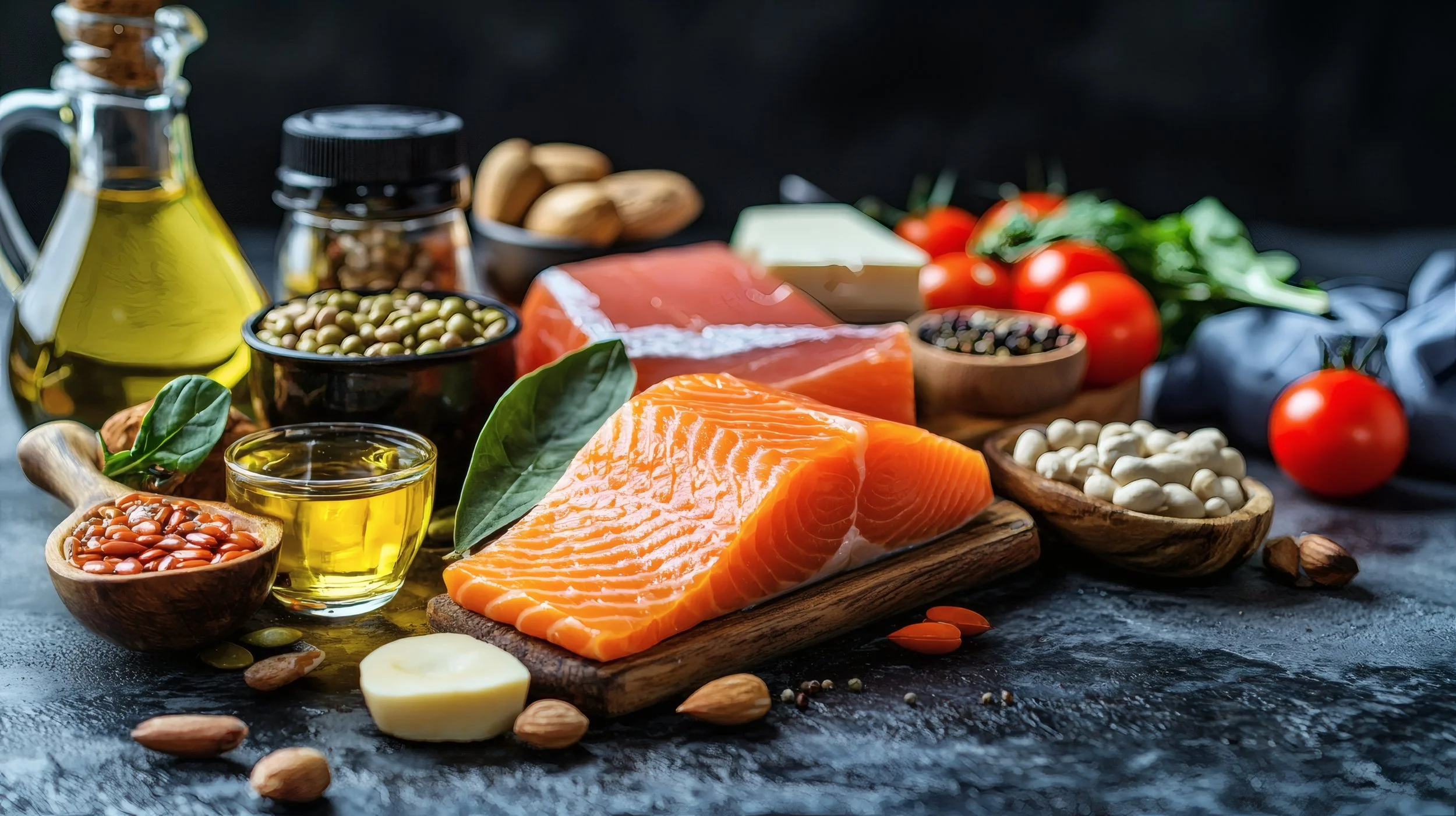The Role of Nutrition in Mental Clarity and Emotional Balance
Mental clarity and emotional balance are deeply intertwined with the choices we make every day, particularly in the realm of nutrition. While exercise, sleep, and stress management often take center stage in discussions about mental well-being, nutrition plays a pivotal yet sometimes overlooked role. The foods we consume are not just fuel for the body but also nourishment for the brain, impacting everything from cognitive function to emotional stability. Here, we delve into how specific nutrients influence brain health and mood, and provide actionable meal ideas to support mental clarity and emotional resilience.
How Foods Impact Brain Health and Mood
The brain is an energy-intensive organ, consuming about 20% of the body’s total energy. To function optimally, it requires a steady supply of high-quality nutrients. Food influences brain health and mood in several key ways:
Glucose for Energy: The brain relies heavily on glucose for energy. Complex carbohydrates, found in whole grains, fruits, and vegetables, provide a slow and steady release of glucose. This prevents energy crashes and supports sustained focus, ensuring a steady performance throughout the day.
Omega-3 Fatty Acids for Brain Structure: Omega-3 fatty acids, particularly DHA (docosahexaenoic acid), are integral components of brain cell membranes. These fats enhance neuronal communication and reduce inflammation, which has been linked to depression and cognitive decline. Fatty fish like salmon, walnuts, chia seeds, and flaxseeds are excellent sources.
Antioxidants to Combat Oxidative Stress: The brain is highly vulnerable to oxidative stress, which can impair memory and cognition over time. Antioxidants found in colorful fruits and vegetables, such as blueberries, spinach, and kale, protect brain cells by neutralizing harmful free radicals, supporting long-term brain health.
Amino Acids for Neurotransmitter Production: Proteins are broken down into amino acids, which serve as building blocks for neurotransmitters like serotonin and dopamine. Foods rich in tryptophan, such as turkey, eggs, and soy, can boost serotonin levels, promoting feelings of happiness and relaxation, while tyrosine-rich foods support alertness and focus.
B Vitamins for Cognitive Function: B vitamins, particularly B6, B9 (folate), and B12, are vital for brain health. They help produce neurotransmitters and maintain the myelin sheath that protects nerve fibers. Deficiencies in these vitamins are associated with mood disorders and cognitive decline. Leafy greens, legumes, eggs, and fortified cereals are great sources of B vitamins.
Hydration for Optimal Brain Function: Even mild dehydration can impair concentration, memory, and mood. Drinking enough water and consuming hydrating foods like cucumbers, watermelon, and oranges ensures the brain operates at peak efficiency, helping to maintain focus and reduce irritability.
Nutrient-Rich Meals and Snacks for Better Mental Clarity
To harness the power of nutrition for mental clarity and emotional balance, incorporating nutrient-dense meals and snacks into your diet is essential. These foods provide the building blocks the brain needs to function optimally:
Breakfast Ideas:
Overnight Oats with Berries and Nuts: Combining rolled oats, almond milk, fresh blueberries, and a sprinkle of walnuts creates a meal rich in complex carbohydrates, antioxidants, and omega-3 fatty acids. This breakfast is not only filling but also supports cognitive function and sustained energy.
Avocado Toast with Egg: A slice of whole-grain bread topped with mashed avocado and a poached egg provides healthy fats, protein, and B vitamins—a perfect start to a productive day.
Lunch Options:
Salmon Salad Bowl: A bed of leafy greens topped with grilled salmon, quinoa, cherry tomatoes, and a lemon-tahini dressing. This dish is packed with omega-3 fatty acids, antioxidants, and protein, making it ideal for supporting brain health and maintaining energy levels.
Lentil and Vegetable Soup: Lentils are an excellent source of folate and protein, while the addition of colorful vegetables contributes fiber, vitamins, and antioxidants. This hearty meal supports both mental clarity and emotional balance.
Snack Suggestions:
Trail Mix: A mix of almonds, walnuts, dried cranberries, and dark chocolate chips creates a satisfying snack with healthy fats, antioxidants, and natural sweetness to curb hunger and boost mood.
Greek Yogurt with Honey and Chia Seeds: This protein-rich snack, combined with probiotics, supports gut health, which is closely linked to brain health, while the chia seeds add omega-3s and fiber.
Dinner Choices:
Grilled Chicken with Sweet Potato and Steamed Broccoli: This meal provides lean protein, complex carbohydrates, and vitamin-rich vegetables for a well-rounded, brain-supportive dinner.
Vegetable Stir-Fry with Tofu: Cooked in sesame oil and loaded with a variety of vegetables, this dish offers an array of nutrients and healthy fats to promote overall well-being.
Beverage Options:
Green Tea: Rich in L-theanine, a compound that promotes relaxation and alertness, green tea is a great alternative to coffee.
Smoothies: Blending spinach, banana, almond milk, and flaxseeds creates a nutrient-packed drink that is easy to digest and supports brain function.
The Gut-Brain Connection
Emerging research highlights the critical role of gut health in mental clarity and emotional balance. The gut and brain communicate through the gut-brain axis, a complex network of biochemical signaling. A healthy gut microbiome can positively influence mood and cognitive function. Probiotic-rich foods like yogurt, kefir, and fermented vegetables, along with prebiotic foods like garlic, onions, and bananas, support a thriving gut microbiome. This connection underscores the importance of a balanced diet in supporting overall mental well-being.
Practical Tips for a Brain-Healthy Diet
Adopting a brain-healthy diet involves more than just adding a few superfoods. It requires a holistic approach to nutrition and lifestyle. Here are some practical tips:
Prioritize whole, minimally processed foods to provide the nutrients your brain and body need to thrive.
Limit refined sugars and trans fats, which can contribute to inflammation and mood swings.
Stay consistent with meal timing to maintain stable blood sugar levels and prevent energy dips.
Incorporate a variety of colorful fruits and vegetables to ensure a broad spectrum of vitamins and antioxidants.
Practice mindful eating to tune in to your body’s needs and better understand how different foods affect your mood and energy levels.
Conclusion
Nutrition is a cornerstone of mental clarity and emotional balance. The food choices we make directly influence our brain’s health, cognitive function, and mood. By choosing nutrient-rich foods and staying mindful of how you nourish your body, you can support your brain’s needs and optimize your emotional well-being. Small, intentional dietary changes can yield significant benefits, paving the way for a sharper mind and a more resilient emotional state. Embrace the power of food as a tool for mental well-being and let your plate become a pathway to a healthier, happier you.
Join our Facebook Community RESTORE Yourself to walk with others learning to be free.
In joy, light, and health,
Coach Rebecca




